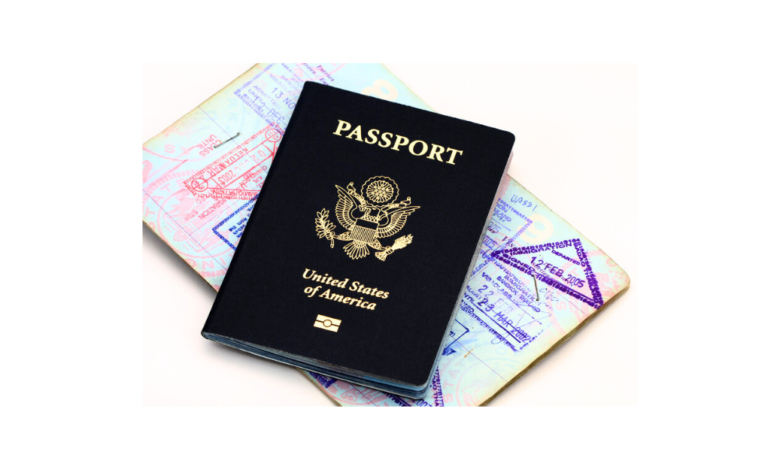Comprehensive Guide to US Immigrant Visas

To visit or live in the United States, residents of many countries must obtain visas. A visa is an official endorsement on your passport, granting you permission to travel to various countries. A US visa allows you to plan a visit or move to the US, but entry is ultimately determined by officials at US points of entry, who may deny entry for reasons such as security concerns. If you meet all requirements and pose no threats, you will be allowed to enter the US with a valid visa.
Types of US Visas
US visas are broadly categorized into nonimmigrant and immigrant visas. This guide focuses on immigrant visas, which enable holders to live permanently in the US.
What is an Immigrant Visa?
An immigrant visa grants its holder the right to reside in the US permanently. Unlike nonimmigrant visas, which require the holder to return to their home country when the visa expires, immigrant visas do not expire. They allow holders to live, work, and study in the US indefinitely. If you live in the US for a specified period without any violations, you can apply for citizenship.
Categories of US Immigrant Visas
Immigrant visas are divided into two major categories: Immediate Relative and Family Sponsored visas, and Employer Sponsored visas.
Immediate Relative and Family Sponsored Visas
These visas are for individuals joining close family members who are permanent US residents. This category includes :
– IR-1, CR-1 Visa (US Spouse Visas) : For those legally married to a US citizen.
– CR-1 Visa : Conditional resident status for the first two years of marriage.
– IR-1 Visa : Permanent resident status after two years of marriage.
– K-1 Visa (Fiancé Visa) : For individuals engaged to a US citizen, allowing them to enter the US for 90 days to get married.
– K-2 Visa : For unmarried children under 21 years old of K-1 visa holders.
– K-3 Visa : For spouses of US citizens waiting for their immigration petition to be processed.
– K-4 Visa : For unmarried children under 21 years old of K-3 visa holders.
– IR-3, IH-3, IR-4, IH-4 Visas : For intercountry adoption of orphan children by US citizens.
– IH-3 and IH-4 Visas : For children adopted from Hague Convention countries.
– IR-3 and IR-4 Visas : For children adopted from non-Hague countries.
– IR-2, CR-2, IR-5, F-1, F-3, F-4 Visas : For certain family members of US citizens.
Employer Sponsored Visas
These visas are for individuals who have a job offer from a US employer. The US government limits the number of employment-based visas to around 140,000 per fiscal year. Types include :
– EB-1 Visa : For first priority workers such as outstanding professors, researchers, individuals with extraordinary abilities, and multinational managers or executives.
– EB-2 Visa : For professionals with advanced degrees or exceptional abilities in arts, sciences, or business.
– EB-3 Visa : For skilled workers, professionals, and unskilled workers.
– EB-4 Visa : For certain special immigrants like religious workers, broadcasters, and employees of the US government.
– EB-5 Visa : For investors who invest significant amounts of money in the US economy, creating jobs.
Importantly, consider to connect with check US visa for Indians in order to know more
Application Process for US Immigrant Visas
Applying for a US immigrant visa involves several steps :
1. File the Petition : A family member or employer in the US must file a petition with the US Citizenship and Immigration Services (USCIS). The petition must be approved before proceeding.
2. Choose an Agent : Select a person to be your point of contact for your visa application. This can be yourself, an attorney, a friend, a family member, or your employer.
3. Pay Fees : Pay the required fees, including the Immigrant Visa Application Processing Fee and the Affidavit of Support Fee.
4. Submit the Visa Application Form : Complete Form DS-260, which collects personal information and details about your immigration request.
5. Submit Supporting Documents : Provide necessary documents, which must be in English or accompanied by an official translation.
6. Attend the Interview : The National Visa Center (NVC) will schedule an interview to determine your eligibility.
US Immigration Forms
Several forms are involved in the application process :
– Form I-129F : Petition for Alien Fiancé.
– Form I-130 : Petition for Alien Relative.
– Form I-140 : Immigrant Petition for Alien Worker.
– Form I-526 : Immigrant Petition by Alien Entrepreneur.
– Form I-800A : Determination on Suitability to Adopt a Child from a Convention Country.
– Form DS-260 : Immigrant Visa Electronic Application.
Finding US Immigration Services
Applicants may need to interact with several US institutions and services, including USCIS, the US State Department, the National Visa Center, the Department of Labor, and US embassies. Due to the complexity of the process, many people seek assistance from lawyers or visa centers.
Merit-Based Immigration and Health Insurance
Recent proposals like the RAISE Act aim to change immigration to a merit-based system, awarding points based on achievements. Immigrants in the US are required to purchase health insurance through private companies, similar to US citizens.
Understanding the various types of immigrant visas and the detailed application process can help prospective immigrants navigate their journey to becoming permanent residents of the United States.



